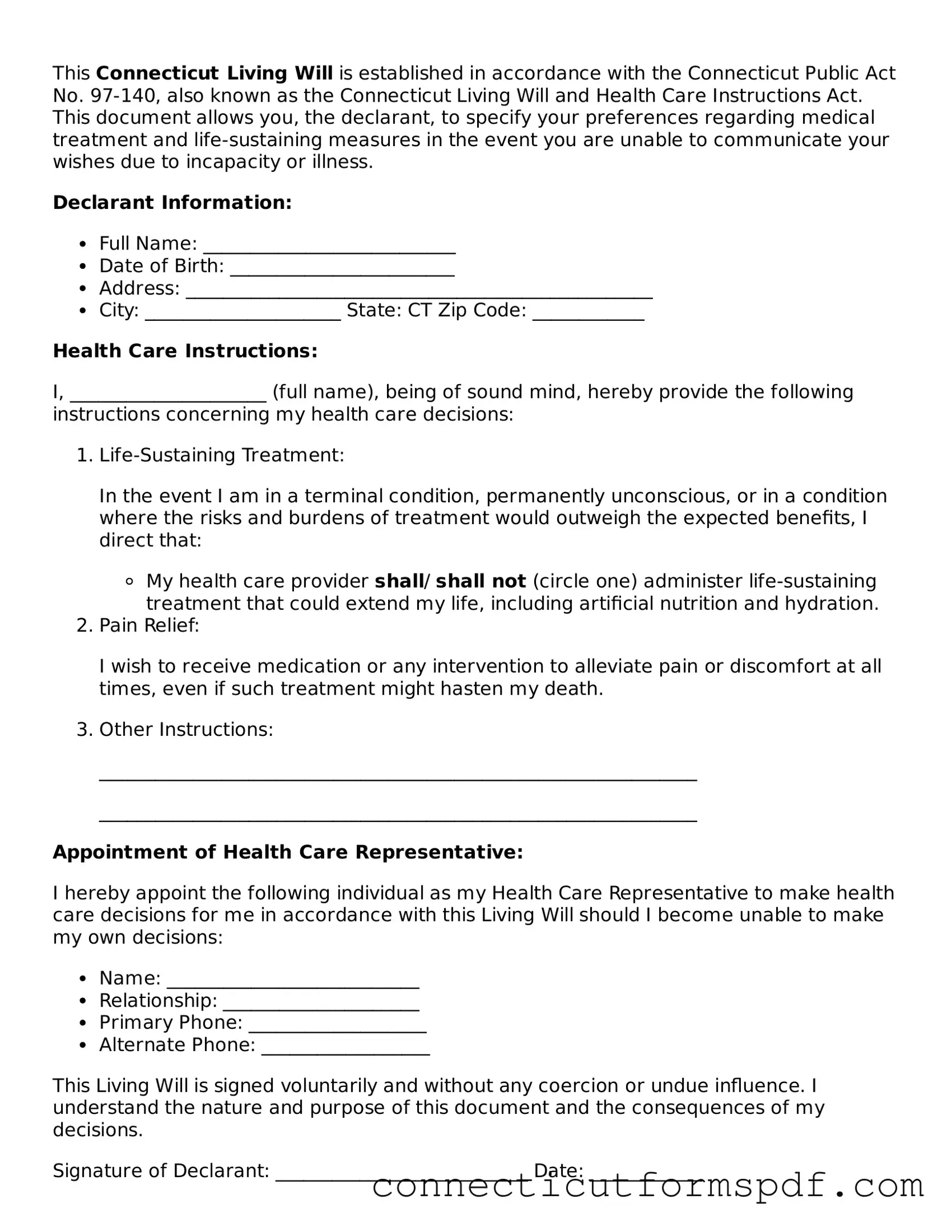This Connecticut Living Will is established in accordance with the Connecticut Public Act No. 97-140, also known as the Connecticut Living Will and Health Care Instructions Act. This document allows you, the declarant, to specify your preferences regarding medical treatment and life-sustaining measures in the event you are unable to communicate your wishes due to incapacity or illness.
Declarant Information:
- Full Name: ___________________________
- Date of Birth: ________________________
- Address: __________________________________________________
- City: _____________________ State: CT Zip Code: ____________
Health Care Instructions:
I, _____________________ (full name), being of sound mind, hereby provide the following instructions concerning my health care decisions:
- Life-Sustaining Treatment:
In the event I am in a terminal condition, permanently unconscious, or in a condition where the risks and burdens of treatment would outweigh the expected benefits, I direct that:
- My health care provider shall/ shall not (circle one) administer life-sustaining treatment that could extend my life, including artificial nutrition and hydration.
- Pain Relief:
I wish to receive medication or any intervention to alleviate pain or discomfort at all times, even if such treatment might hasten my death.
- Other Instructions:
________________________________________________________________
________________________________________________________________
Appointment of Health Care Representative:
I hereby appoint the following individual as my Health Care Representative to make health care decisions for me in accordance with this Living Will should I become unable to make my own decisions:
- Name: ___________________________
- Relationship: _____________________
- Primary Phone: ___________________
- Alternate Phone: __________________
This Living Will is signed voluntarily and without any coercion or undue influence. I understand the nature and purpose of this document and the consequences of my decisions.
Signature of Declarant: ___________________________ Date: ____________
Witness Declaration:
This document was signed in my presence. The declarant, in my opinion, is of sound mind and under no duress, fraud, or undue influence.
- Witness 1 Signature: ___________________________ Date: ____________
- Witness 1 Printed Name: _________________________
- Witness 2 Signature: ___________________________ Date: ____________
- Witness 2 Printed Name: _________________________
Note: Two witnesses are required for the execution of this document, neither of whom shall be a health care provider, conservator, or an heir.

